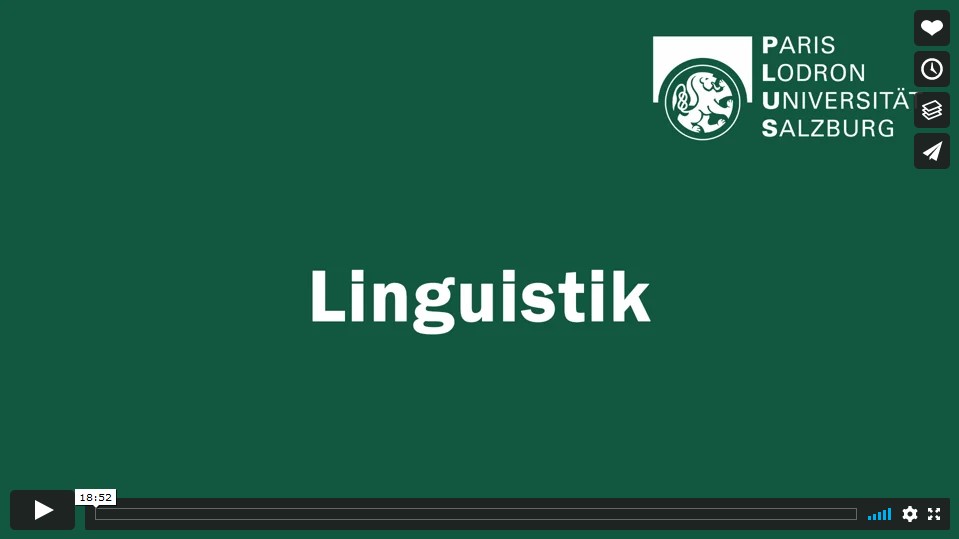LINGUISTICS BSC
| Schedule appointment for personal enrolment To register for your studies, you must enter your personal data online. Enter your data and select an appointment. Please click here for more information. |  presentation video |
| Course Duration / ECTS | 6 semesters / 180 ECTS |
| University degree | Bachelor of Science (BSc) |
| Admission Requirements and Curriculum | · Matura or school leaving certificate (e.g., Abitur (GER), GCE levels (UK), Diplome du Baccalaureat de l’Enseignement du Second Degre (F), Titulo de Bachiller (E), Attestat (RSF)), which is comparable in length and quality to the Austrian Matura. · Additional exam: Latin proficiency -to be completed before the final Bachelor’s examinations · Curriculum |
| Dates and Deadlines | · The dates and deadlines change every semester. · The current deadlines and dates can be found here. |
| Information on the department and departmental student representatives | Department of Linguistics stv.liczBnguistmQZik@oSY2eh-svbHalzbuFCRrg.atzBm |
| Language level required | German B2 |
Are you already a student at the PLUS and want to take up this study program as well – or switch?
Here you will find the services for PLUS students.
If you still need help or advice after enrolling (registering for a study program), you will find important links here.

What will I learn?
The BSc degree course in Linguistics imparts many aspects with which linguists deal academically: (1) Natural sciences/cognitive science (the production and processing of signals; theoretical and experimental modelling of linguistic knowledge and its healthy and impaired acquisition and use, incl. neurophysiological basics). (2) Cultural studies/humanities (languages as historic phenomena, examination of linguistic change, language mixture and the relations of loanwords). (3) Social sciences (language as a tool of social performance). The BA degree course in Linguistics offers students the possibility to specialize in either the field of General and Diachronic Linguistics (theoretical modelling of linguistic knowledge with a focus on syntax and semantics; language history) or in the field of Psycho-, Neuro- and Clinical Linguistics (experimental modelling of linguistic knowledge; language acquisition and disorders).

Which career opportunities do I have?
Linguistics’ relevance as a fundamental science for all sciences dealing with language cannot be estimated high enough. The field of Linguistics provides the theoretical basics for its related subjects and allows them to work with language in a scientific way. Thus, graduates in Linguistics are important driving forces for many sciences. Due to the large number of linguistic research areas and fields of application, linguists can choose from a wide range of occupations and there is no standard career. Occupations for Linguistics graduates include an academic career, adult education, language and communication technology, lexicography, publishing, media work, public administration, international organisations, service industries (e.g., libraries, archives, PR, the standardization/planning of language, pre-school language classes, speech therapy.
Postgraduate degree:
Psycholinguistics, Neurolinguistics and Clinical Linguistics
Linguistics Language Sciences
Contact

Univ.-Prof. Dr. Dietmar Roehm
Head of the department and head of the curriculum committee Linguistics
Erzabt-Klotz-Straße 1, 5020 Salzburg
Tel.: +43 662 8044-4271
E-Mail: dietmwButmOar.rUq8GL.oehm@plus.XjkoE3ac.atSRJdxU
Photographs: © Luigi Caputo (1-3) I © Dietmar Roehm (4)




